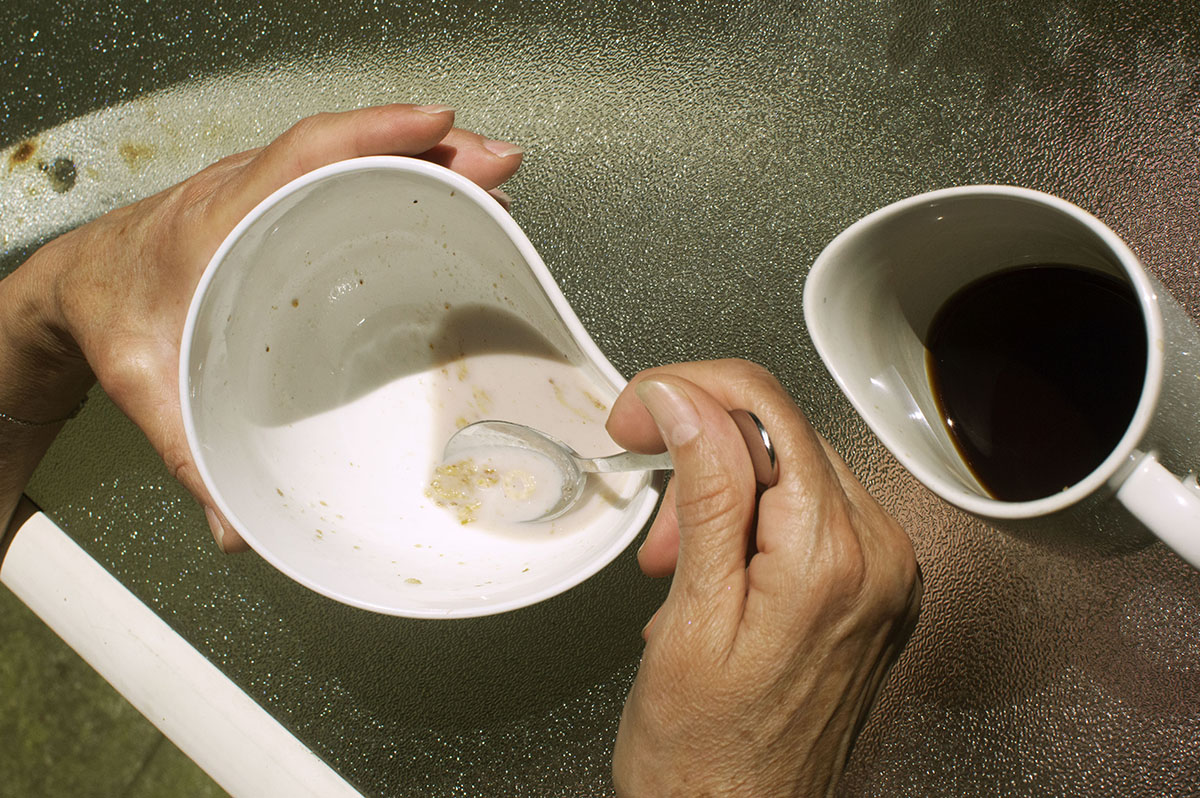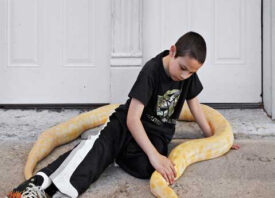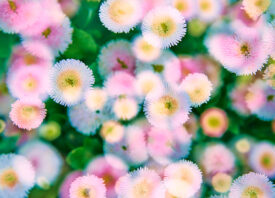Search this site
A Mother’s Struggle With Mental Illness


Chelsea Muscat’s mother, Salvina, grew up on a farm in Gozo in the Mediterranean Sea. She’s always longed for the sea and the sun, even after moving to New York with her family as an adult. She’s a painter of landscapes; she knits sweaters and blankets. This summer, she started working with clay sculptures. She’s also anorexic and has struggled with her mental health for as long as her daughter can remember.
Muscat, now an adult, photographer, and filmmaker, also spent her early years in the Mediterranean, and her mother’s illness informed her world from a young age. “I remember she would run after me and my sister when we were young, trying to measure our waists to see where we stood,” the artist says.
“She used to be very depressed, paranoid, and suicidal. I’ve always had to be an adult, even at ten years old. I didn’t know a ten-year-old shouldn’t be responsible for someone’s life–especially a person who was supposed to be in charge of my life.”
Muscat spent her early childhood with her mother, but Salvina returned to Malta when her daughter was thirteen years old and remained until she was eighteen. As a recent college graduate, the photographer has been living with her mother, father, and sister in New York during quarantine. Photographing Salvina has become part of her routine, and in some ways, it’s also served as a coping skill.
Muscat uses a simple 35mm camera with flash for this series, resulting in raw, harsh lighting. She’s used an old digital camera that audibly “screeches” when it focuses, and recently, she’s distorted some of the images in Photoshop to reflect the way her mother sees herself–and how she sometimes sees her mother.
Although Salvina has seen the photographs, her daughter doesn’t feel she’s grasped their meaning within their relationship. “These days, it takes her a long time to process things or fully comprehend anything I’m saying,” Muscat says. “It feels like I’m talking to a child most times.
“When I say how I truly feel or that she traumatized me and my sister, she just responds with ‘I’m sorry.’ It’s an automated response, but my feelings don’t register. Next week, I can tell her the same thing again, and she has no awareness of it.”
Conversations at home are often limited to a few words, and Salvina’s pain, paranoia, and anxiety weigh heavily on her daughter. “For example, she blames when she eats a slice of cake–because cake starts with the letter ‘c’ and my name is Chelsea and starts with the letter ‘c,’” the artist says. “She tells me I’m controlling her and making her gain weight so I don’t gain weight, and that might be my entire interaction with her for the day.”
The ongoing project and the resulting images might not bring about healing or acknowledgment from Salvina–of her daughter’s trauma or her accomplishments–but perhaps that’s not their purpose. Even if Salvina can’t process their relationship, maybe her daughter can. The artist tells us, “It’s about accepting her for who she is and trying to make peace with the fact that the mother I once knew does not exist, no matter how badly I want a support system.”
She’s also made visible something that used to be tightly locked away, secret and invisible. “Filming and photographing is the only way I can show people what I go through,” she tells me. “I could never describe the details before, and it’s easier to see it and hear it. I also hope other people can relate out there and know that they aren’t alone.”
In the future, Muscat hopes to include pictures of her mother during happy moments too, like when she’s at work on a painting or sculpture. “When she is passionate about a project, she’ll do research, find tools and materials lying around, and get to work right away,” the photographer says. She admires her mother’s creativity and always has.
Muscat loves her mother. She also mourns for her. The photographs are a testament to both. “I think I’ll always feel like a lost kid wandering the streets, wanting and trying to go home, but knowing such a place doesn’t exist,” she admits. She visits Gozo, the island where both she and Salvina grew up, whenever she can. It’s where she goes to escape and to forget. Like her mother, she loves the sun and the sea.







All images © Chelsea Muscat (@storyof_mymother)


